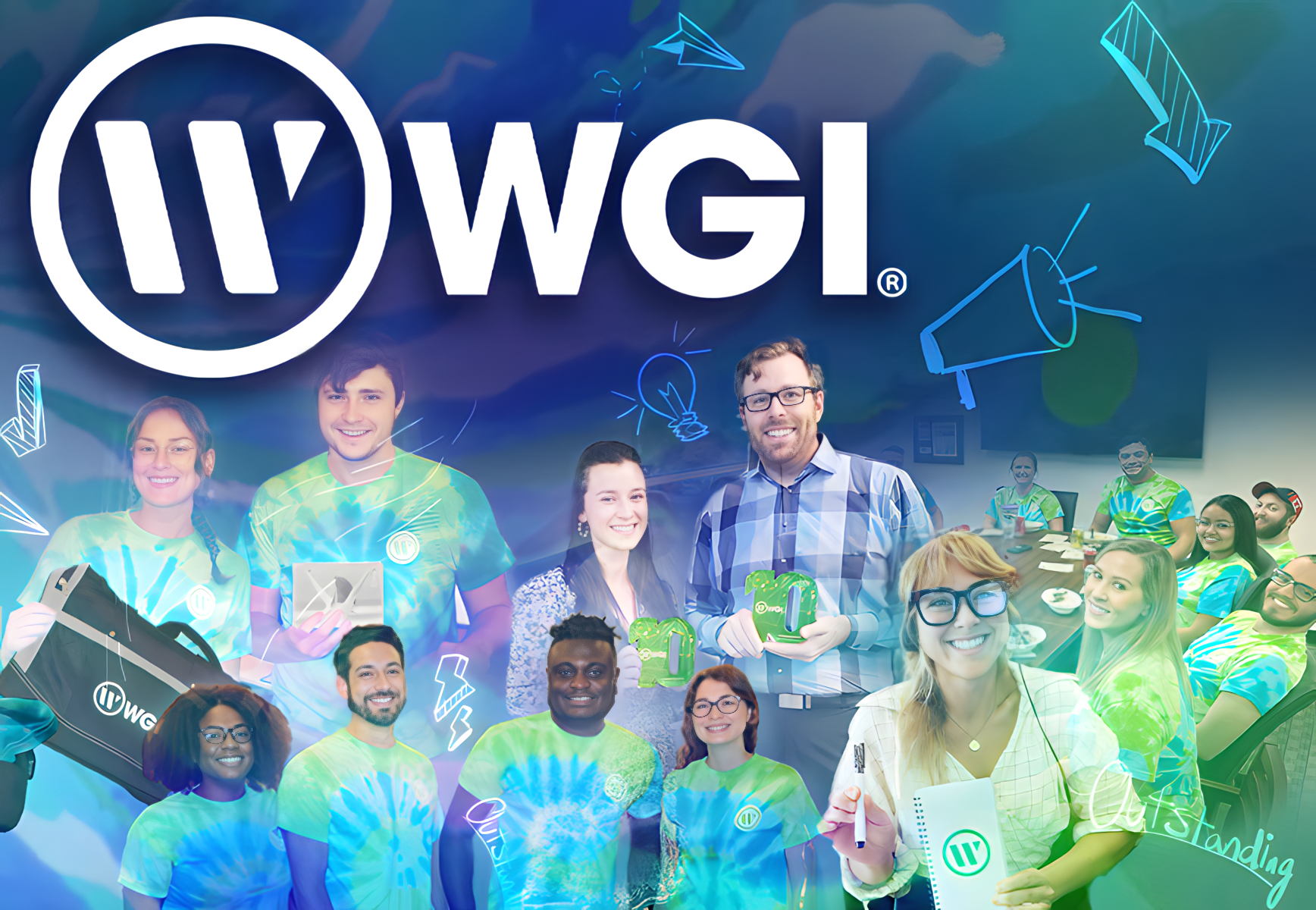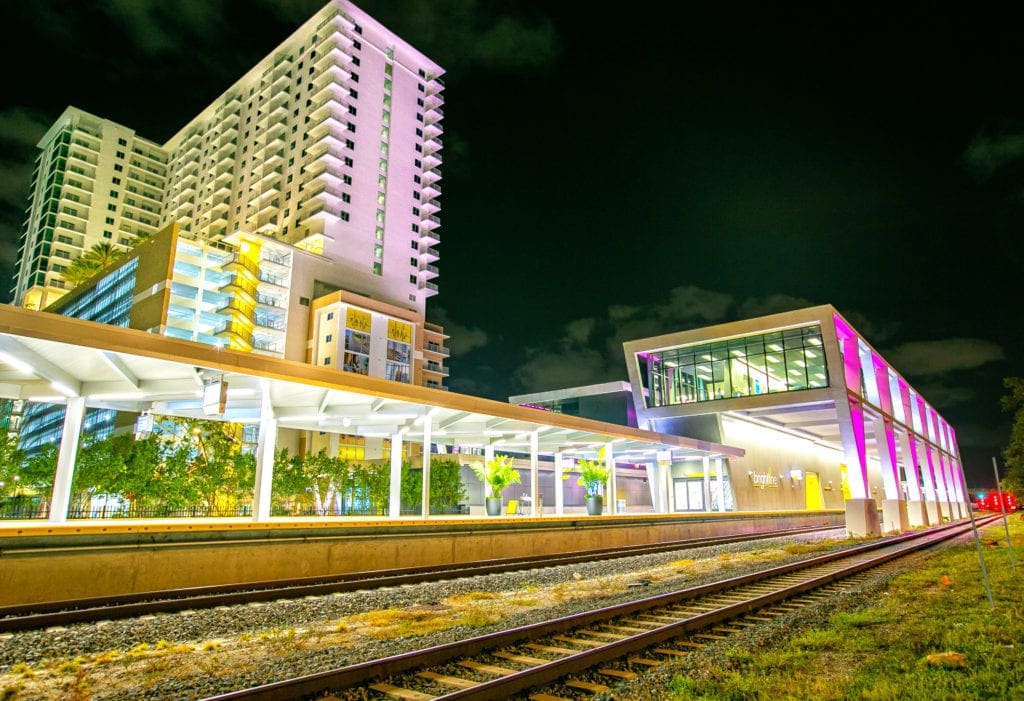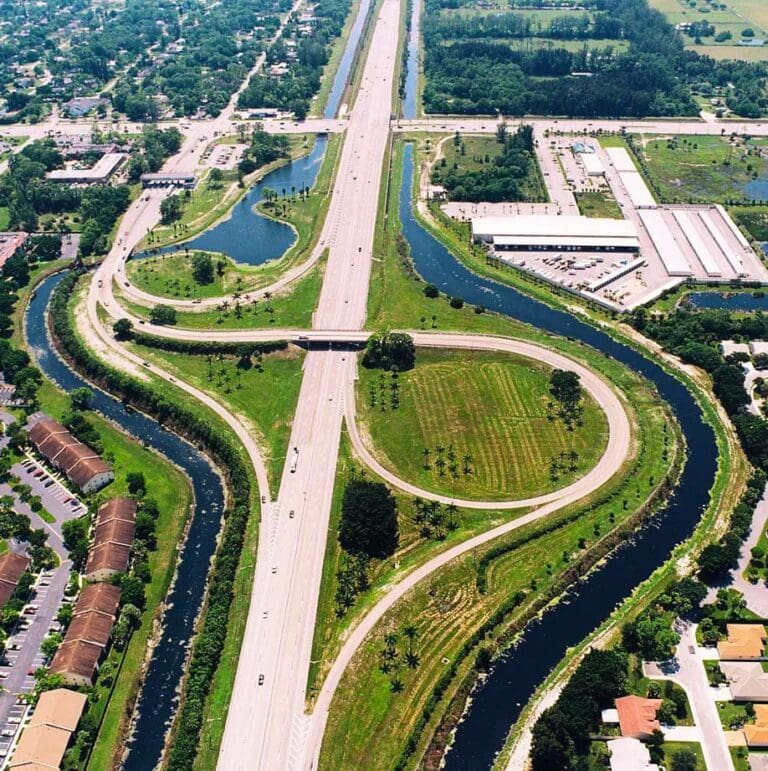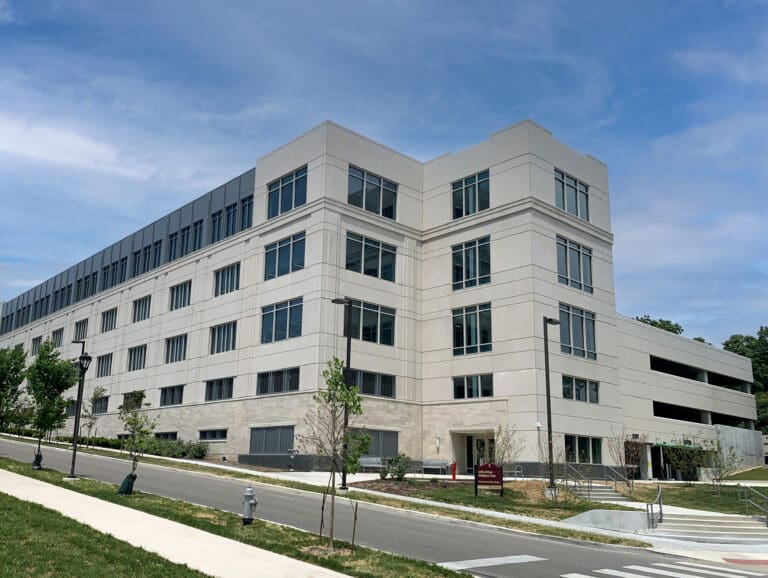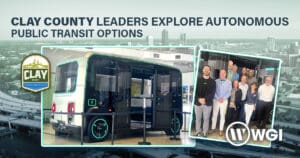WGI’s Lisa Nisenson and Andrew Crozier were among the 3000 planners who attended this year’s National Planning Conference in San Diego, California, from April 30th to May 3rd. During the four-day conference, the convention center teemed with activity as attendees connected with other planning professionals, shared updates, and explored solutions for the challenges communities face.
Lisa and Andrew presented at two well-attended sessions on Mobility Hubs and Planning for Smart Cities.

What We Presented:
The Mobility Hubs session featured Andrew and Marisa Mangan from the San Diego Association of Governments (SANDAG). WGI presented information from our recent Zoning Practice report on Mobility Hubs, which the American Planning Association commissioned. We developed typologies that we reproduced on a handout shared on social media in that report.
Marisa covered SANDAG’s Mobility Hub program, one of the first and most developed in the country, reinforcing the need for safe and supportive multi-modal infrastructure to support first and last-mile access. Marisa and Andrew both pointed out the need to plan for the first and last miles since new mobility options such as e-bikes and micro transit extend the range past the one-mile mark.

During Q & A, questioners raised exciting points for moving forward:
- Understanding the role of data to determine the best locations to develop a constellation of connected hubs
- The need for more information on design to de-conflict the flow of people who are traveling at different speeds and making connections among different modes of transportation
- Concerns that accommodations for carshare and automated vehicles will force an automobile-centric design to the detriment of other modes such as walking, biking, and micromobility
Lisa’s session featured Vatsal Bhatt from the US Green Building Council and Shannon McElvaney from Jacobs. The presentation included information to help planners:
- Identify the top infrastructure investments to leverage the technologies in smart cities
- Analyze real examples of overcoming typical problems with building smart-cities infrastructure
- Evaluate how to take advantage of current federal infrastructure initiatives and funding programs

What We Heard
The expansive four-day program covered topics related to the practice of planning, public engagement, urban design, and infrastructure. Several topics stood out in presentations and conversations.
Data: The ability to readily collect, analyze, and apply data is a real game-changer for almost all aspects of planning. Planners, however, need to pay attention to important matters that fall into the “almost” category to avoid quantification bias—in other words, only paying attention to the most readily measured topics. A data-driven approach can form the foundation for performance-based planning and active management to better track and adjust how cities manage everything from social programs to traffic control to resilience practices.
Equity: Equity was central to the entire program to guide improved planning processes that are genuinely inclusive and representative. Some of the most powerful conversations were led by planners of color who recounted confrontations regarding bikeshare and Complete Streets, which are viewed as catalysts for gentrification.
Foresight: This year’s program emphasized the utility of anticipatory planning – or foresight. This planning technique lets communities examine plausible futures and prepare accordingly. One session demonstrated the value of forecasting where aging infrastructure would be most affected during extreme events. Another utilized data sets to address interdependent and evolving climate and affordable housing challenges.

In 2022, we will be applying many of the concepts covered at the conference. In particular, we will expand our work on Mobility Hubs and typologies, track federal funding releases, and continue work on complete and programmable streets.
Lisa will also be presenting at APA’s virtual conference on May 19th and 20th, providing insights on programmable streets and detailed information for planners on the Bipartisan Infrastructure Law.
Sign up for our newsletter to learn more.
Contact our team today and let’s discuss how we can provide support on your major project.


